Reverse Osmosis and Purified Water
Clean water is important for industrial processes, but the water a facility receives may not be clean enough. Using a reverse osmosis (RO) purification system can provide the level of purity companies need for product specifications and quality standards. Reverse osmosis water purification is a common technique for removing impurities from water for use in processing everything from pharmaceuticals to food and beverages. Systems using reverse osmosis rely on durable check valves to dependably manage reverse flow and water hammer to purify contaminated water.
Why Check Valves for the Reverse Osmosis Industry?
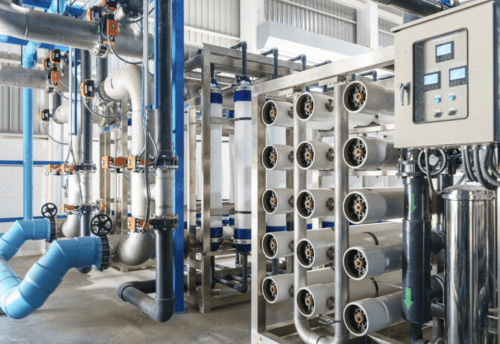
Different check valves provide different benefits, functionalities, and levels of control at various stages. For example, a check valve located after water exits the membrane housing stops backflow and ensures that permeate water continues out the outlet port. Check valves are also required components for reverse osmosis systems that have automatic shut-off valves and pressurized tanks. When a tank is full, it creates enough back-pressure that it could send water surging backward through the system, causing breakage or recontamination. A spring-assisted valve can stop purified water from exiting back through the membrane. Flow only begins again after the back-pressure is below the feed pressure.
While check valves can protect the reverse osmosis setup, they do experience harsh conditions. Corrosive seawater and chemical contaminants can degrade these valves. Over time, dissolved salts (ions), chloride, and other chemicals will break down the seal and housing, which can lead to contaminated water. However, facilities can reduce the risk of deterioration by choosing the right seals and housings for the expected contaminants and environmental conditions. Nickel-aluminum-bronze and duplex stainless steel valves, for example, can withstand constant exposure to seawater. These materials are commonly used in check valves for reverse osmosis/desalination plants throughout Saudi Arabia, Israel, and the coast of California.
Reverse Osmosis Applications and Industries
Water purity is especially essential for the production of consumable goods, and reverse osmosis systems used along with other water treatment systems meet this challenge. Two of the most common industries with applications for reverse osmosis valves are:
- Food and beverage. Reverse osmosis can purify water to guarantee safety, consistency, quality, and controllable tastes and odors in the final products.
- Pharmaceuticals. Pharmaceutical manufacturers cannot create safe products without pure water. Even trace amounts of bacteria, organic material, chemicals, or minerals can jeopardize a product. In fact, some of the strictest water purity mandates call for water that has 10,000 times lower impurity levels than safely rated drinking water.
No matter the industry or water source, DFT® Inc. manufactures and distributes check valves that can keep reverse osmosis equipment running smoothly. Four of our highly recommended RO valves are:
- GLC® NAB (Nickel-Aluminum-Bronze) Silent Check Valves
- GLC® (Duplex Stainless Steel) Silent Check Valves
- Excalibur® NAB (Nickel-Aluminum-Bronze) Silent Check Valves
- Excalibur® (Duplex Stainless Steel) Silent Check Valves
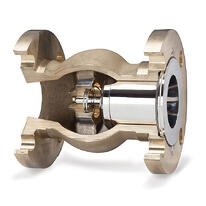
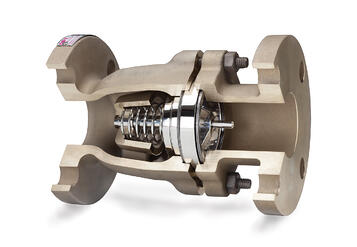
These check valves have a spring-assisted and non-slam design with applications in pressurized systems for preventing water hammer and in systems with exposure to extremely harsh conditions. With their use in brine, brackish water, and more, check valves are rated to withstand corrosion and deter marine life. They also feature a nozzle style for easy operation and require little maintenance.
Choose Reverse Osmosis Check Valves From DFT®
Reverse osmosis systems can purify water to make it safe for drinking, industrial processes, and pharmaceutical and food production. In those systems, check valves allow for safe and efficient water processing. For over 75 years, DFT® has innovated to provide its customers with in-line check valves and severe service control valves to fit their specific needs. Contact us today to learn more about our capabilities, or request a quote to start your order.





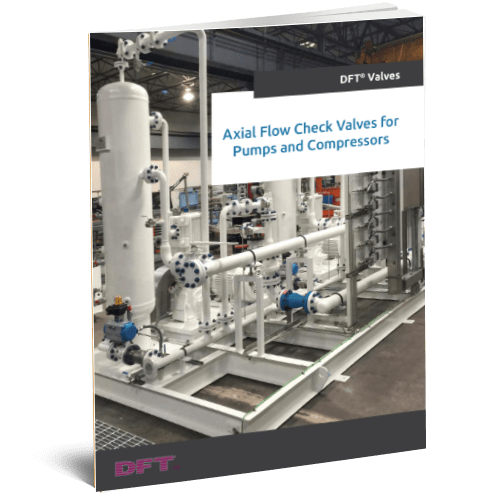
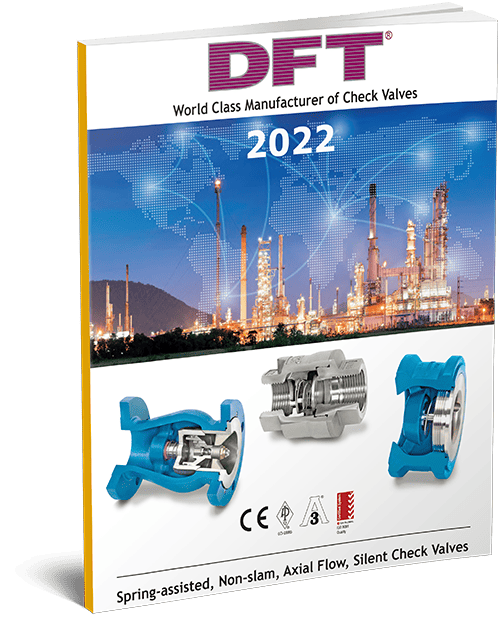
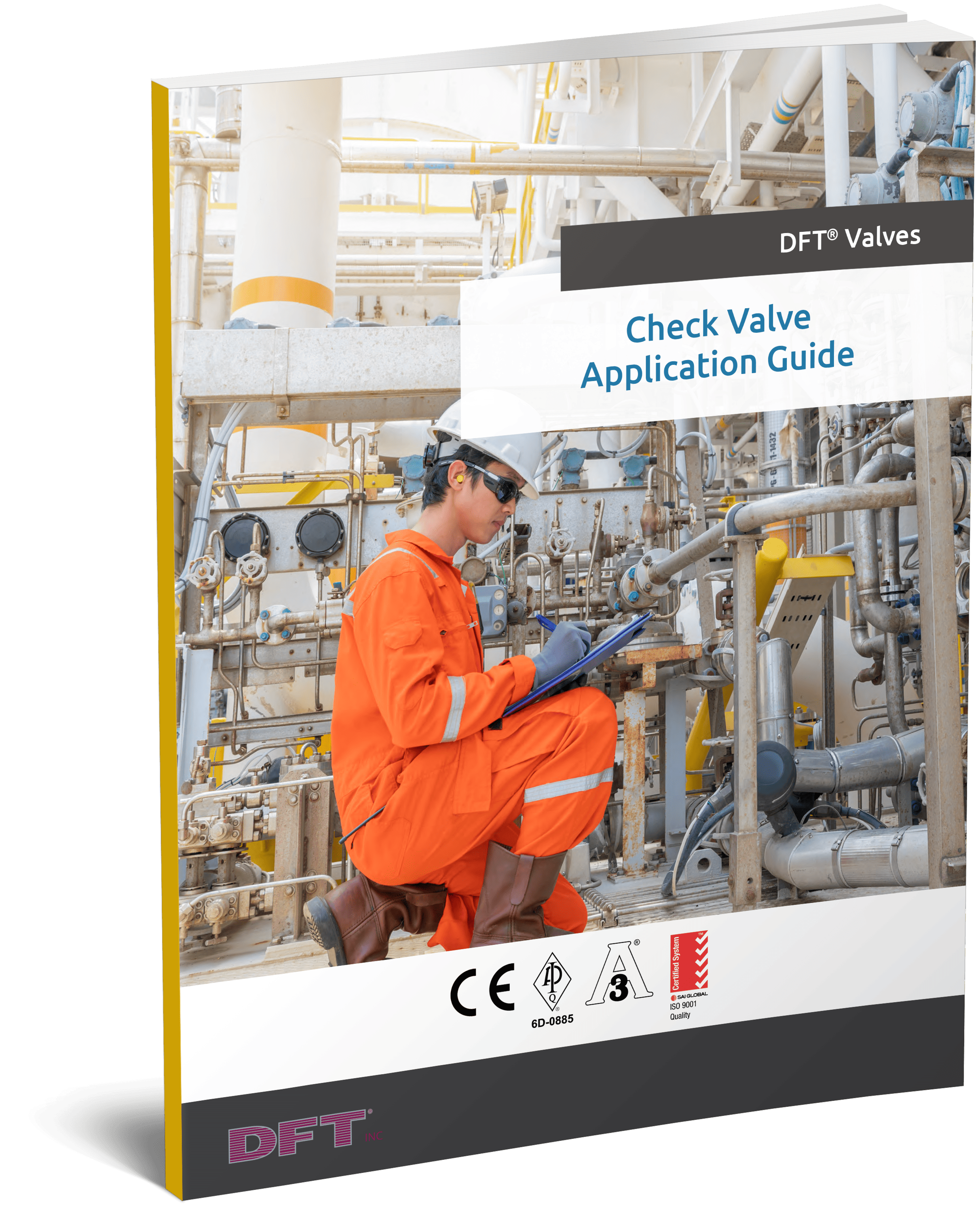

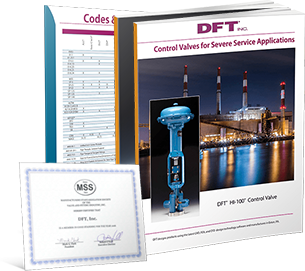
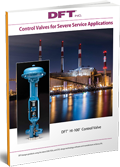
Comments are closed